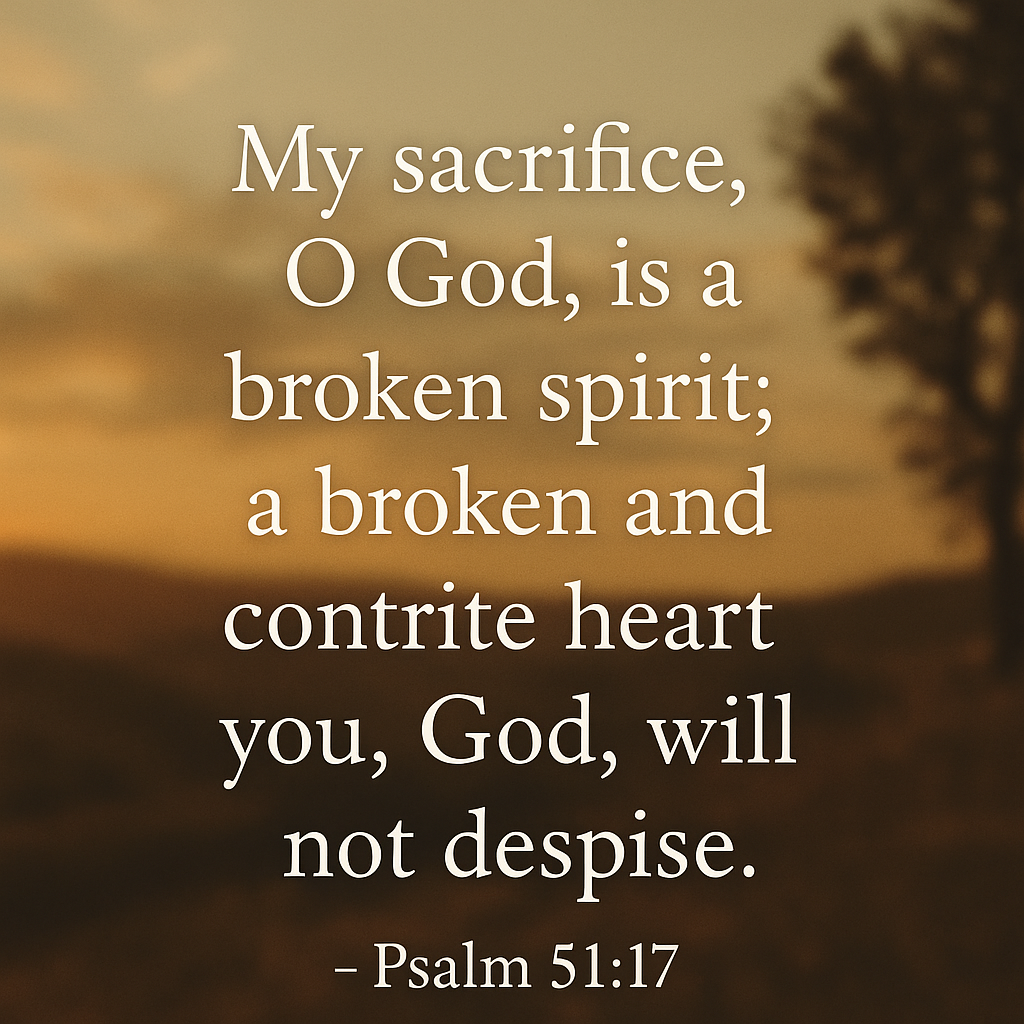A contrite heart is not a term we use often today. It’s dated. Churchy. It’s easy to skim over it during our morning Bible reading, get the gist, and go to the next verse. But a contrite heart holds special value to the Christian. It’s something we need to understand because this state of the heart plays a pivotal role in our faith. A contrite heart is the key, along with trust, to a right relationship with God.
What Does Contrite Mean in the Bible?
The first step to understanding the meaning of a contrite heart starts with the dictionary. Good old Webster has never let me down. Searching for the English definition of contrite, I found, “feeling or expressing remorse or penitence; affected by guilt.” Within this definition lie many strong words, but the foundation of them all is “guilt.”
Where no feeling of guilt resides, no contrition can be found. Our hearts must be pricked. As so eloquently stated by Italian poet, Vittorio Alfieri: “To err is human, but contrition felt for the crime distinguishes the virtuous from the wicked.”
A contrite heart mourns what it’s done. But contrition involves more than sorrow. A contrite heart actively demonstrates remorse. Another way to understand the depth of this word is through its Hebrew counterpart. Its definitions include: “crushed, broken into pieces, smashed, and destroyed.” These words describe a heart of someone who regrets his actions to the point of complete devastation, and this brokenness prompts action.
In the article, “What is Contrition? Bible Meaning of a Contrite Heart,” the action taken by a contrite heart is explained by Alfred Garnett Mortimer, the rector of St. Mark's Church in Philadelphia. Mortimer states that a contrite heart confesses her sins, turns to God, averts temptation, and forgives others. Mortimer paints the picture of a contrite, humble heart exchanging death for life. It does not stay broken by guilt. It’s healed by grace.
Contrition vs. Guilt
Though guilt acts as the catalyst for contrition, it cannot remain. When we experience guilt, our tendency may be self-condemnation. But a contrite heart doesn’t stay in that place, because pride feeds self-condemnation. Spiritual humility brings us to the throne of grace where we confess our sin, ask forgiveness, and trust in the redemption of Jesus Christ. We cannot redeem our actions, but in His great mercy, he can. Self-condemnation, loathing in guilt and shame, is where the enemy wants us to stay. A contrite heart humbly knows its wrongful actions, admits it, and asks for help to change.
What Are Examples of a Contrite Heart in Scripture?
Perhaps one of the best examples of a contrite heart is found in Psalm 51, a psalm written by David. King David had been convicted of his sin. He felt guilty for his adultery and the murder he’d orchestrated against Bathsheba’s husband. He cried out for forgiveness and mercy.
“Have mercy on me, O God,
according to your unfailing love;
according to your great compassion
blot out my transgressions.
Wash away all my iniquity
and cleanse me from my sin. . .
You do not delight in sacrifice, or I would bring it;
you do not take pleasure in burnt offerings.
My sacrifice, O God, is a broken spirit;
a broken and contrite heart
you, God, will not despise. (Psalm 51: 1-2,16-17 NIV)

God despises sin. Yet David knew if his heart truly felt sorrow for what he’d done, if he were devastated over his actions, God would forgive. Isaiah wrote of this same benevolent characteristic of God. As he wrote to Israel of their sins against YHWH and their worship of false gods, he penned this promise:
“For this is what the high and exalted One says—
he who lives forever, whose name is holy:
“I live in a high and holy place,
but also with the one who is contrite and lowly in spirit,
to revive the spirit of the lowly
and to revive the heart of the contrite.” (Isaiah 57:15)
Only contrite hearts can live with Jehovah, and he also promises new life within the broken spirits who turn back to him and worship the one true God.
Why God Values a Contrite Heart
God values and commands this heart position because an unbroken heart does not recognize its need for Jesus. A non-contrite heart might come to Jesus because he’s heard that Jesus will make his life better. In our postmodern society, many sermons no longer preach repentance.
But Jesus died because of sin—he died for our sin. There is no room at the foot of the cross for pride, self-justification, or false humility. Only those humbly bowing beneath Jesus’s pierced feet come to the Father. A contrite heart knows her sin and her need for grace. She recognizes she can’t be good enough on her own.
Original sin is still alive and well. Just babysit a two-year-old for a day or stand in a long line when you’re in a rush. Two-year-olds demand their way, and we do too when we’re stressed. Our DNA does not include holiness. We need Jesus’ blood for that.
Living With a Contrite Heart
Now that we know what a contrite heart is and the importance it holds in right relationship with God, how do we live that way? That answer can be found through one word: humility. A humble heart knows it’s not perfect. It’s not quick to judge, but it is quick to go to the Father in prayer for wisdom, forgiveness, and grace. May we borrow this prayer from David:
“Create in me a pure heart, O God,
and renew a steadfast spirit within me.
Do not cast me from your presence
or take your Holy Spirit from me.
Restore to me the joy of your salvation
and grant me a willing spirit, to sustain me.” (Psalm 51: 10-12 NIV)
We can pray for humility, renewed faithfulness, and strength to live our days with hearts positioned to live in His presence today and forever.
Embrace Humility
Just as the term contrite heart is not used often today, humility is not always viewed as something to desire. But as Christians, we are not called to live as the world demands. We’re called to follow the beautiful example of Christ—a life of servanthood and sacrifice.
In his book, The Purpose Driven Life, Rick Warren begins with these freeing words, “It’s not about you.” His point was that our life is really about God and his good plans. We really can’t fathom all he’s planned for us (Isaiah 64:4). Embrace humility by intentionally worshiping Jesus throughout the day. When he is on the throne of our hearts, nothing else can take that place.
Practical ways of worship include turning Christian music on and lifting our hands, but it also involves obeying when the Spirit prompts our steps, our generosity, or simply slowing down for the merging traffic. I like to start my day on my knees in prayer as the coffee brews. That physical position bowed before the throne helps start my day with a humble, contrite heart aware of my need for grace and thankful for his new morning mercies.
Prayer for a Contrite Heart
“Father-God, thank you for loving us. Thank you for Jesus. Please take away our fleshy pride. Position our hearts to receive your mercy and grace daily. Give us a contrite heart. And Lord, we pray for those we love who we desperately want to know you and receive your salvation. We pray for their hearts to be contrite, to know their sin and come to you for mercy and grace. You are so good, faithful, and forgiving. Help us. Change us. Humble these human hearts for your glory. Amen.”
Photo Credit: ©iStock/Getty Images Plus/kevron2001
Andy Lee is an event speaker, blogger, YouTuber, and award winning author of three books, A Mary Like Me; The Book of Ruth Key-Word Bible Study, and Radiant Influence: How an ordinary girl changed the world. She passionately teaches how to find life in God's Word in order to live abundantly. You can catch her life giving messages weekly on Instagram and YouTube. She also provides monthly Bible reading plans and articles on her website www.wordsbyandylee.





